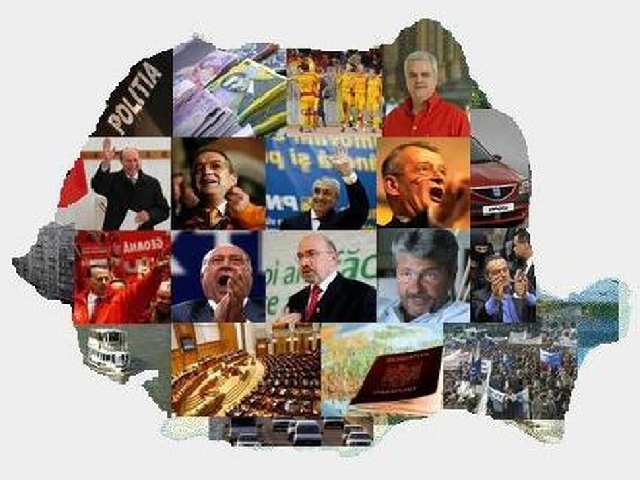The Week, 21-27 March
A look at the main developments in Romania this past week

România Internațional, 26.03.2016, 13:52
Romania, in solidarity with Belgium after Brussels terrorist attacks
Romania has joined the international community in firmly condemning the bloody attacks carried out in Brussels on Tuesday, which killed scores and injured hundreds of people, of 40 nationalities, among which 4 Romanians. In memory of those who fell victim to the attacks claimed by the Islamic State terrorist organisation, Romania observed a day of national mourning on Thursday. In token of solidarity, the government building in Bucharest was lit in the colours of the Belgian flag, and a book of condolences was opened at the Belgian Embassy in Bucharest. Romanias President, Klaus Iohannis, Prime Minister Dacian Ciolos, politicians, foreign ambassadors accredited to Bucharest and ordinary people, alike, left messages in the book. The Romanian President said the scourge of terrorism can be combated only by solidarity and unity, and the Prime Minister underlined that in such situations the solution is to boost cooperation between the EU member states.
The Romanian President paid an official visit to Turkey
During his official visit to Ankara on Wednesday and Thursday, Romanian President Klaus Iohannis and his Turkish counterpart, Recep Tayyip Erdogan, firmly condemned terrorism and stood for solidarity. Iohannis said countries should have a common and clear response, in the effort to combat the attacks. He underlined that Turkey, as a country which is hosting a large number of refugees on its territory, plays a key role in solving the migrant crisis, in terms of humanitarian assistance, the control of the migration inflow and the fight against networks of human traffickers. Klaus Iohannis:
Klaus Iohannis: “This visit comes against the backdrop of a complicated geopolitical and regional context. There are many security risks and challenges that we should face and find solutions to. I am confident that together, based on a strong partnership between Romania and Turkey, we can better manage these risks. Our citizens want security and prosperity.
Ways to combat terrorism and the migration crisis were also approached during President Iohannis talks with Turkish Prime Minister Ahmet Davutoglu. The two sides agreed to boosting bilateral cooperation in several fields. Iohannis and Davutoglu also approached the need to boost bilateral cooperation based on the Strategic Partnership between the two countries, to enhance cooperation in the Black Sea area and within NATO. The two officials laid special emphasis on economic cooperation, given that Turkey is Romanias largest non-EU trade partner and the fifth largest world partner. The two countries also intend to increase the volume of trade, up to 10 billion dollars. Klaus Iohannis also met in Istanbul with representatives of the Romanian community in Turkey.
The Prime Ministers Control Unit presents the conclusions of the report on the Colectiv nightclub tragedy in Bucharest
Nearly five months after the devastating fire at the Colectiv nightclub in Bucharest, which killed 64 people and wounded another 200, the Prime Ministers Control Unit made public a report on the events that night. The document reveals that response operations on the night of the fire were largely uncoordinated and improvised. The situation was caused due to the lack of training in emergency situations, legislative inconsistencies and the scarcity of materials, the report also states. According to the same document, the code red intervention plan was not started immediately, being delayed by bureaucratic procedures, although at least one of the calls received clearly signalled the seriousness of the situation, in which case the legislation in force allows for the use of faster intervention mechanisms. The report also notes that there were institutions that did their job properly and others that did not, such as the Inspectorate for Emergency Situations.
Work-to-rule strike action in the Romanian health sector
Some 12,000 medical staff in Romania this week called a work-to-rule strike. Their demands concern a consistent salary system, the payment of bonuses and observing working and rest hours. Family physicians have also started a protest this week, unhappy with the low budget allocations and the faulty IT system. Here is the vice-president of the National Association of Family Medicine, Sandra Alexiu:
Sandra Alexiu: The most important thing we demand is better funding for family medicine. This year we got even less funds than in previous years, way below the European average allocation to family physicians. Whereas the budget share is 9% at European level, we only get 5,8%, which makes family medicine a difficult job.
Mondays strike action is the first in a series of protests trade unions in the health sector say will continue also in April.



























